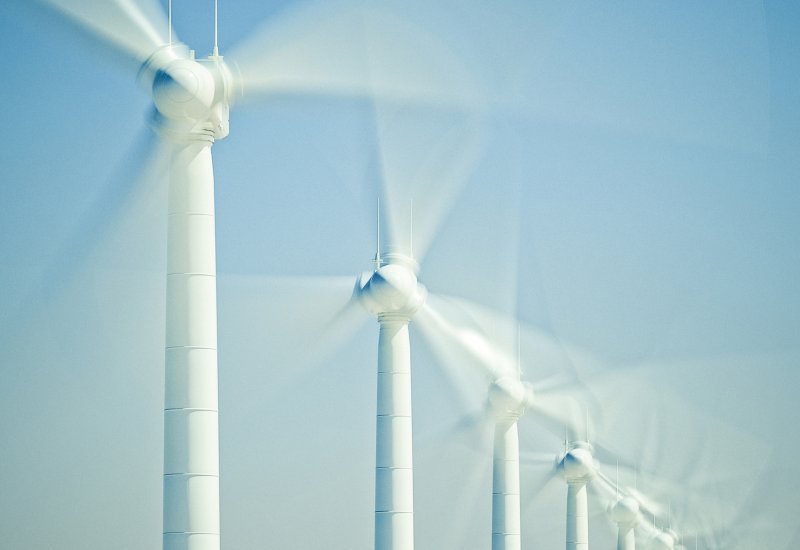
We must not sacrifice the environmental crisis just to resolve an economic one
Governments should beware sacrificing global decarbonisation efforts on the altar of economic prosperity, but likewise must not decelerate growth to achieve a cleaner world. Better to find a way to do both.
COVID-19 has brought to the forefront two themes prevalent in current economic attitudes towards global warming.
Firstly, it has shown there is a very worrying attitude among politicians, economists and possibly the public that addressing green concerns is a luxury and must take a back seat when economies are struggling. As recouping the lost growth seen over the past couple of months might take decades, green issues could permanently take a back seat until economies are back to something resembling the levels of early 2020.
Secondly, it has heightened the opposite risk of the public reacting to the pandemic by rejecting global trade and globalisation, and instead embracing restrictive economic models which at first glance could reduce CO₂ emissions, but at a massive cost to global economic growth.
In this ‘de-growth’ scenario, the lack of a recovery seemingly becomes the main tool against global warming. However, it is questionable whether it would be politically or socially acceptable for economies to collectively forfeit any rebound from the current recession in 2021, then accept a decade-long recession that a de-growth agenda would achieve.
Looking at carbon intensity as one unit of carbon per unit of GDP, we expect to see world GDP growth show that CO₂ emissions fall by 6% this year. While this might seem to show that less global growth is better for the environment, this is still very far from the rate of decline calculated by the Global Investor Coalition (GIC) as necessary to keep global warming under 1.5 degrees by the end of the 21st century.
We would still need to see a further 13% fall and would very much expect CO₂ emissions to rebound, as they did after the 2008-09 financial crisis, in 2021. The economic contraction has therefore not given us more time to solve global warming, nor has the recession made any meaningful impact on changing our production of CO₂.
Despite the crisis, we cannot postpone increasing our efforts to decarbonise our economies. If we do, soon we will be left with two bleak choices – either we give up on curbing global warming and accept the devastating environmental, social, economic and geopolitical costs, or we enter a period of durable recession.
Estimates from the European Commission suggests that to achieve a green transition, investment efforts need to be at around 2-3% of annual GDP. While many of these ‘transition investments’ do not show immediate profitability, what should be more seriously taken into consideration is the true cost that global warming will ultimately have on domestic and international economies.
The recession however does have a silver lining for investments to tackle global warming. By taking advantage of the low level of interest rates, a European Climate Emergency Fund that could offer joint long-term debt would be able to use the investment to fund green transition projects. These would be taken on by governments or corporations and could provide the opportunity to bring together economic growth and curb global warming. European fiscal integration, which this crisis has shown is much needed, could also benefit from such a venture and lead to further growth.
It is entirely understandable that green concerns were sidelined in the immediate term in order to focus policy efforts on the pandemic, and I commend governments and businesses that have taken appropriate steps to protect employees and business continuity.
However, we must now not lose track of the transition towards a green economy as we start recouping our losses and remember that an environmental crisis in the future could be just as – if not more – damaging.
This article first appeared in Business Green.

Our responsible investing approach
We actively invest for the long-term prosperity of our clients and to secure a sustainable future for the planet.
Find out moreDisclaimer
This document is for informational purposes only and does not constitute investment research or financial analysis relating to transactions in financial instruments as per MIF Directive (2014/65/EU), nor does it constitute on the part of AXA Investment Managers or its affiliated companies an offer to buy or sell any investments, products or services, and should not be considered as solicitation or investment, legal or tax advice, a recommendation for an investment strategy or a personalized recommendation to buy or sell securities.
It has been established on the basis of data, projections, forecasts, anticipations and hypothesis which are subjective. Its analysis and conclusions are the expression of an opinion, based on available data at a specific date. All information in this document is established on data made public by official providers of economic and market statistics. AXA Investment Managers disclaims any and all liability relating to a decision based on or for reliance on this document. All exhibits included in this document, unless stated otherwise, are as of the publication date of this document. Furthermore, due to the subjective nature of these opinions and analysis, these data, projections, forecasts, anticipations, hypothesis, etc. are not necessary used or followed by AXA IM’s portfolio management teams or its affiliates, who may act based on their own opinions. Any reproduction of this information, in whole or in part is, unless otherwise authorised by AXA IM, prohibited.
AXA IM and BNPP AM are progressively merging and streamlining our legal entities to create a unified structure
AXA Investment Managers joined BNP Paribas Group in July 2025. Following the merger of AXA Investment Managers Paris and BNP PARIBAS ASSET MANAGEMENT Europe and their respective holding companies on December 31, 2025, the combined company now operates under the BNP PARIBAS ASSET MANAGEMENT Europe name.